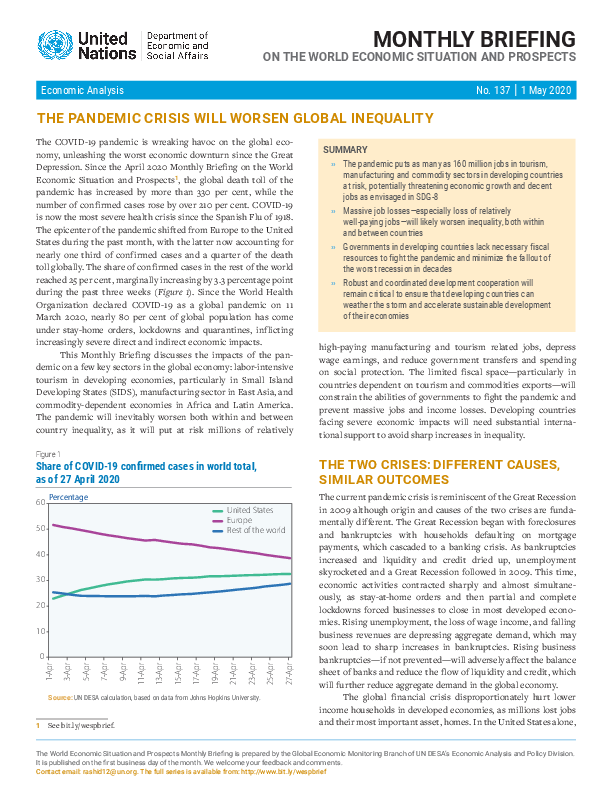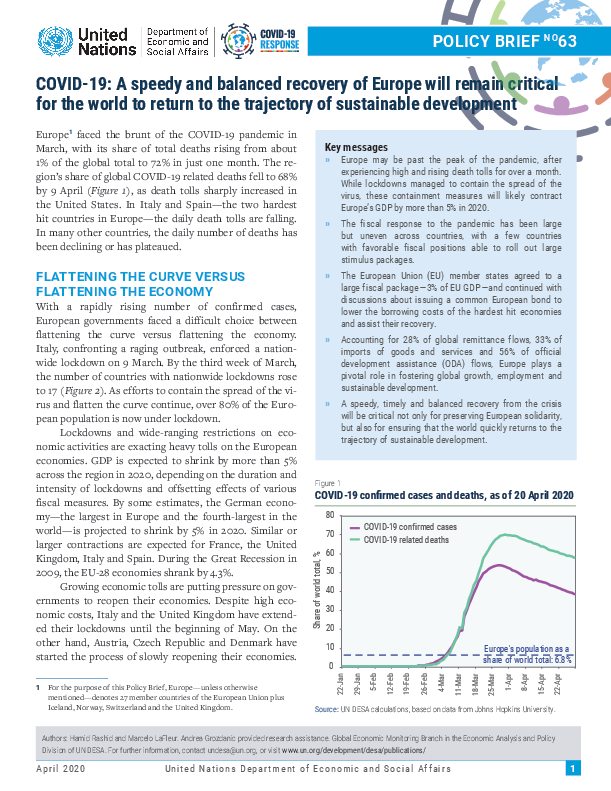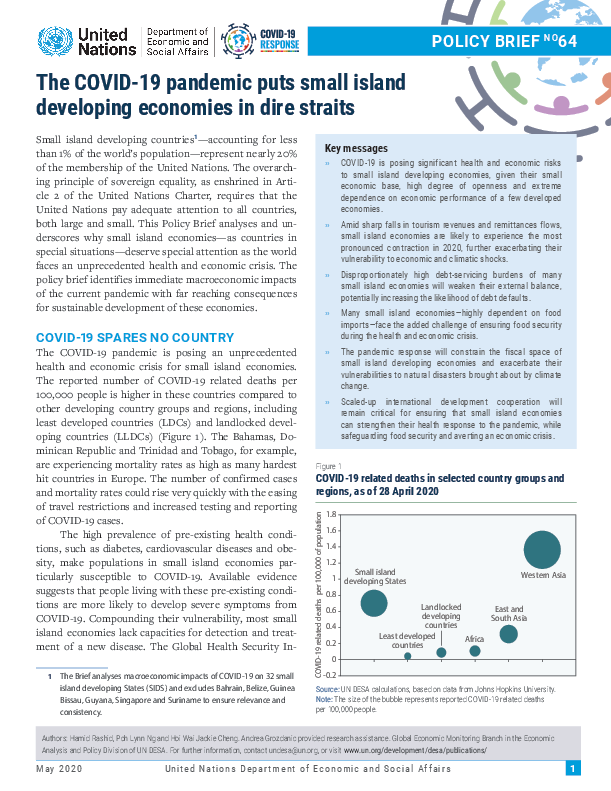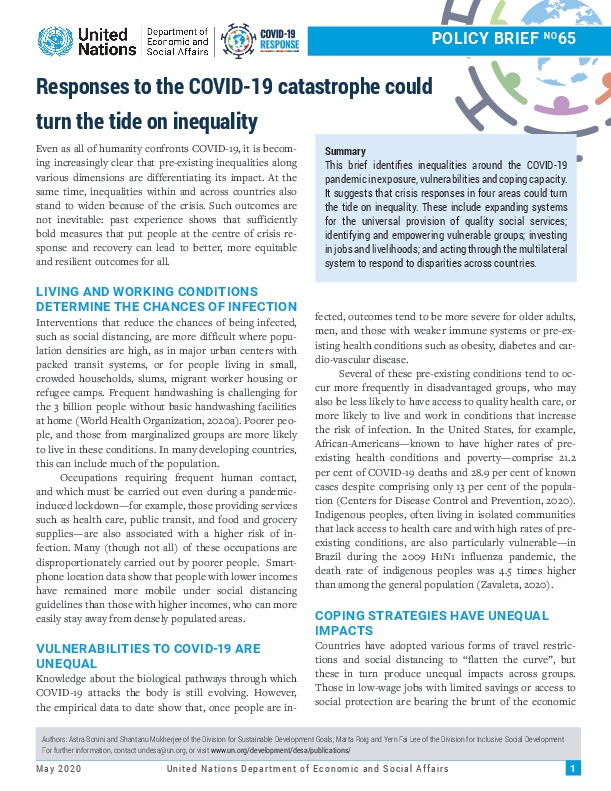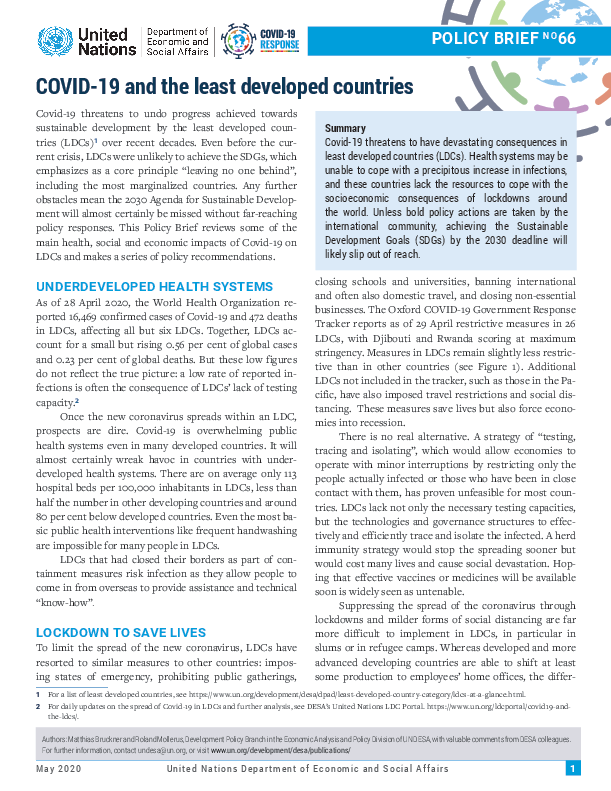Publications
Displaying 271 - 280 of 1087
and the achievement of the Sustainable Development
Goals (SDGs) during this Decade of Action. However,
the response and recovery must be done in a way that
protects the human rights of all youth. UN/DESA Policy Brief #67: Protecting and mobilizing youth in COVID-19 responses
remain
critical for ensuring that small island economies
can strengthen their health response to the pandemic, while
safeguarding food security and averting an economic crisis. UN/DESA Policy Brief #64: The COVID-19 pandemic puts Small Island Developing economies in dire straits
pandemic in exposure, vulnerabilities and coping capacity.
It suggests that crisis responses in four areas could turn
the tide on inequality. These include expanding systems
for the universal provision of quality social services;
identifying and empowering vulnerable groups; investing
in jobs and livelihoods; and acting through the multilateral
system to respond to disparities across countries. UN/DESA Policy Brief #65: Responses to the COVID-19 catastrophe could turn the tide on inequality
 Welcome to the United Nations
Welcome to the United Nations





